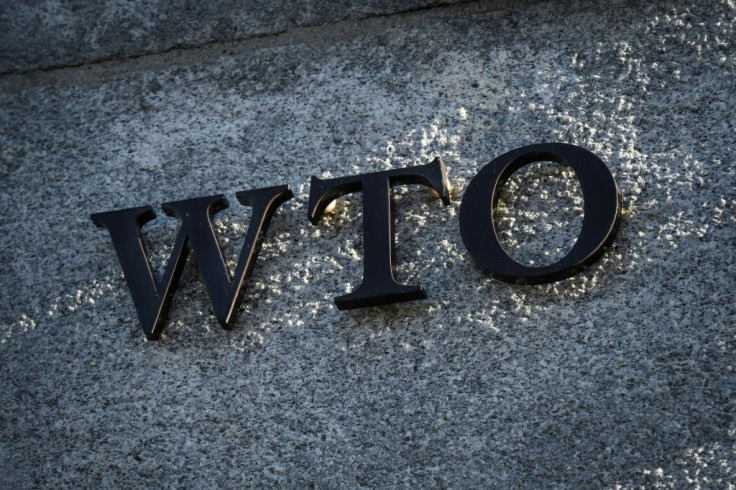World Trade Organization Rules US China Tariffs Illegal, Recognized Chinese Intellectual Property Theft

KEY POINTS
- The U.S. imposed $400 billion in tariffs on Chinese goods between March 2018 and September 2019
- The tariffs were imposed in retaliation for the theft of intellectual property by Chinese concerns
- The WTO ruling recognized the validity of the allegations against China but said the U.S. should have sought dispute resolution first
The World Trade Organization ruled Tuesday the $400 billion in U.S. tariffs imposed on some Chinese goods since 2018 violated international rules, but the investigative panel did not propose any remedy.
WTO said it did not dispute U.S. allegations of intellectual property theft by China but said the Trump administration had failed to meet the “burden of demonstrating that the measures [taken] are provisionally justified” by WTO rules.
The ruling has no practical effect, especially since the administration can file an appeal within 60 days, which will keep the issue tied up because the WTO appellate division is virtually paralyzed since the U.S. has refused to appoint new members.
The Trump administration began imposing tariffs on Chinese steel and aluminum in March and April 2018, added aircraft parts, semiconductors and microscopes in the following July; added motorcycles, steam turbines and railway cars in August; added fabric, modems, chemicals, furniture and seafood in September, and added agriculture products, antiques, clothing, kitchenware and footwear in September 2019. The two countries reached a phase 1 trade agreement in January 2020 that eased the levies.
Tuesday’s ruling came in response to a complaint filed by China in which Beijing alleged the tariffs had violated WTO most-favored treatment provisions. It also alleged the U.S. violated the trade dispute resolution process by not seeking dispute resolution before imposing the levies.
The U.S. did not file any counterclaim despite $130 billion in tariffs imposed by China during the same period.
“The United States has not presented to the panel any refutation of China's assertion that the measures are inconsistent with [WTO rules],” WTO concluded.
U.S. Trade Representative Robert Lighthizer said China is guilty of unfair trade practices, but the WTO is incapable of stopping them.
“Although the panel did not dispute the extensive evidence submitted by the United States of intellectual property theft by China, its decision shows that the WTO provides no remedy for such misconduct,” Lighthizer said in a statement that also called the WTO “inadequate.”
“The United States must be allowed to defend itself against unfair trade practices, and the Trump administration will not let China use the WTO to take advantage of American workers, businesses, farmers and ranchers,” the statement added.
China’s Ministry of Commerce hailed the ruling as “fair.”
© Copyright IBTimes 2025. All rights reserved.






















